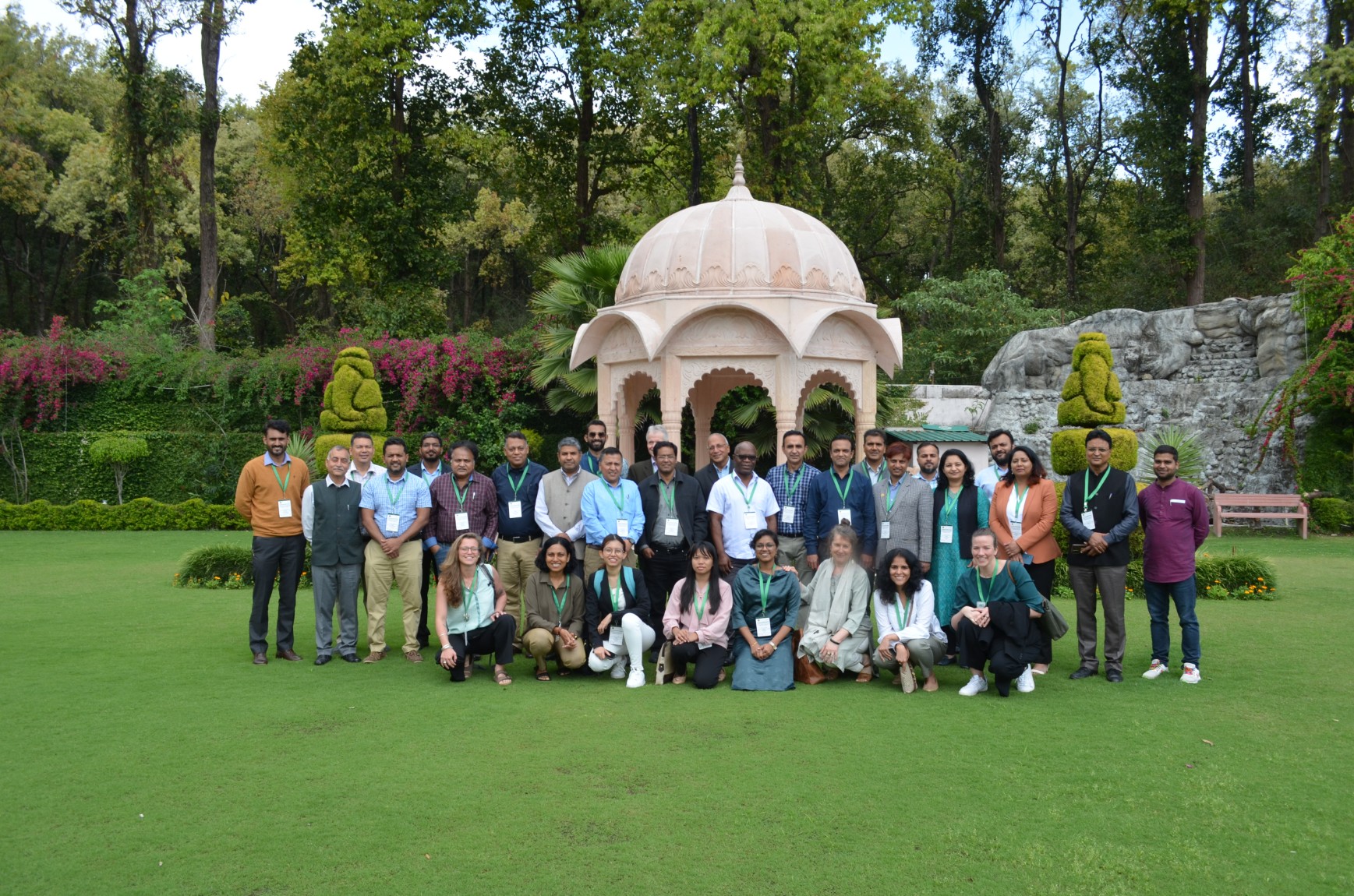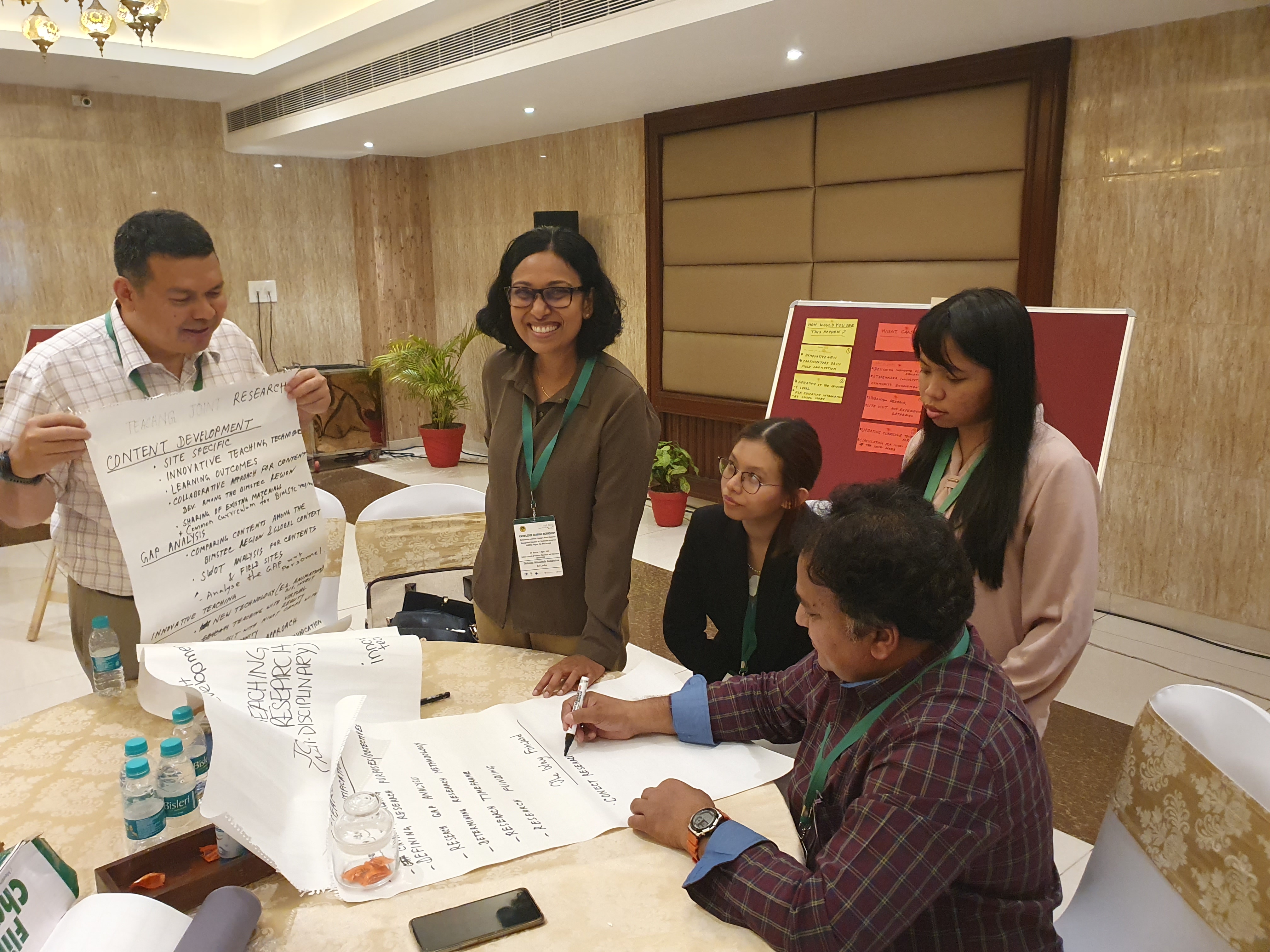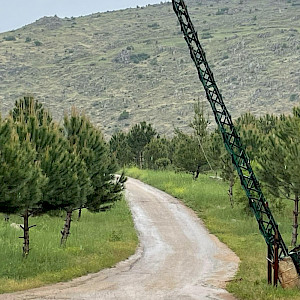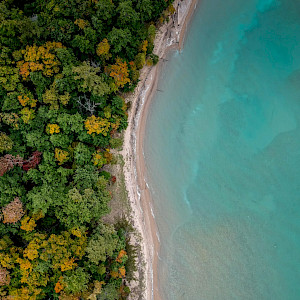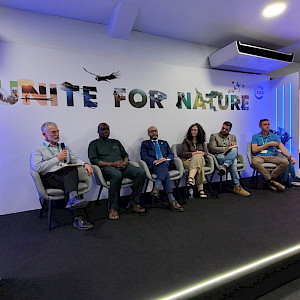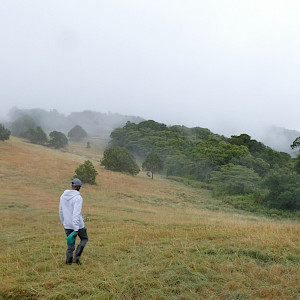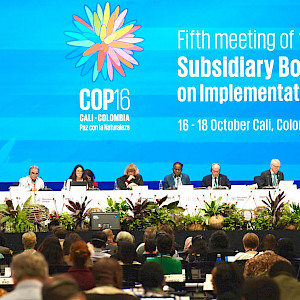In an effort to meet the growing demand for landscape restoration expertise, educators from Bangladesh, Bhutan, India, Myanmar, Nepal, Sri Lanka and Thailand gathered for two knowledge sharing workshops. These events shed light on the current state of natural resources management education and explored avenues for regional cooperation. In this article, we discuss the highlights of these two workshops and the growing collaboration among educators to equip students with the skills and attitudes needed to implement forest landscape restoration in the region.
The first workshop (17-19 October 2022, online) started with a review of restoration-related definitions and concepts, including integrated land management, forest landscape restoration, rewilding, and ecosystem restoration. Participants explored how these concepts were integrated into existing curricula and shared insights into their countries restoration education systems. A diverse range of topics, from basic restoration principles to governance and policy issues, were identified as vital components of restoration education.
Discussions centred around identifying restoration-relevant competences covered by existing natural resources management curricula and other necessary competences that could be further developed through curriculum revisions, dedicated restoration courses, practical on-site teaching, and strengthened collaboration with restoration implementing agencies. The workshop also fostered new ideas, emphasizing the development of transformative curricula, teachers acting as facilitators, experiential and practice-based learning, and the cultivation of critical mindsets to drive change.
Following the virtual workshop, educators convened in Dehradun, India, in March 2023. This time, participants shared examples of field training and outdoor learning sites, such as the Myanmar Forest School Training Forest, which develops traditional forest management skills and investigates indigenous tree species and their biodiversity. Participants discussed the importance of field and practical experience in developing the necessary competences and considered how existing field sites and training areas could be used for promoting the landscape approach and encompassing broader aspects of restoration education, including social skills, rural economics, and integrated landscape planning.
The group expressed an interest exchanging information and developing collaborations in the BIMSTEC region. The way forward could include the development of an online portal, featuring mailing lists, newsletters, blogs, Q&A sections, and short videos, to facilitate ongoing knowledge sharing and interaction. Educational materials, for example, a guidebook presented during the event for forest restoration from Sri Lanka could be stored on this platform, to further enhance the accessibility and dissemination of restoration-related resources.
The participants also proposed exchange programs for both teaching staff and students, enabling them to learn about restoration approaches and educational programs across the region. Guest lectures and field site visits in different countries were recommended too, alongside internships with organizations and institutions implementing restoration projects. These initiatives seek to create a dynamic learning environment, nurturing practical skills and fostering cross-cultural understanding.
Equipping professionals in the BIMSTEC region with diverse skills to restore forests and a wide array of ecosystems, including savannas, wetlands, coastal areas, and urban zones was recognised as an important step towards implementing restoration activities contributing to national targets, regional initiatives and the United Nations Decade on Ecosystem Restoration. By integrating restoration education across disciplines, the region aims to meet the demands of evolving labour markets while designing and implementing effective restoration initiatives. Participants jointly developed a work plan to strengthen collaboration on restoration education that was included in the workshop report (see links below).
The Indian Council of Forestry Research and Education and the Indira Gandhi National Forest Academy organised the workshops in collaboration with IUFRO's Special Programme for Development of Capacities (SPDC), Global Landscapes Forum (GLF) and Wageningen University & Research. The events received support from the Republic of Korea's National Institute of Forest Science, Ministry for Foreign Affairs of Finland and U.S. Forest Service.
To read the reports and presentations, and learn more, visit the following websites:
Mainstreaming Landscape Thinking for Restoration Impact in Natural Resources Management Education in the South Asia Region
Mainstreaming Landscape Thinking in Natural Resources Management Education for Restoration Impact in the BIMSTEC Region: The Way Forward

